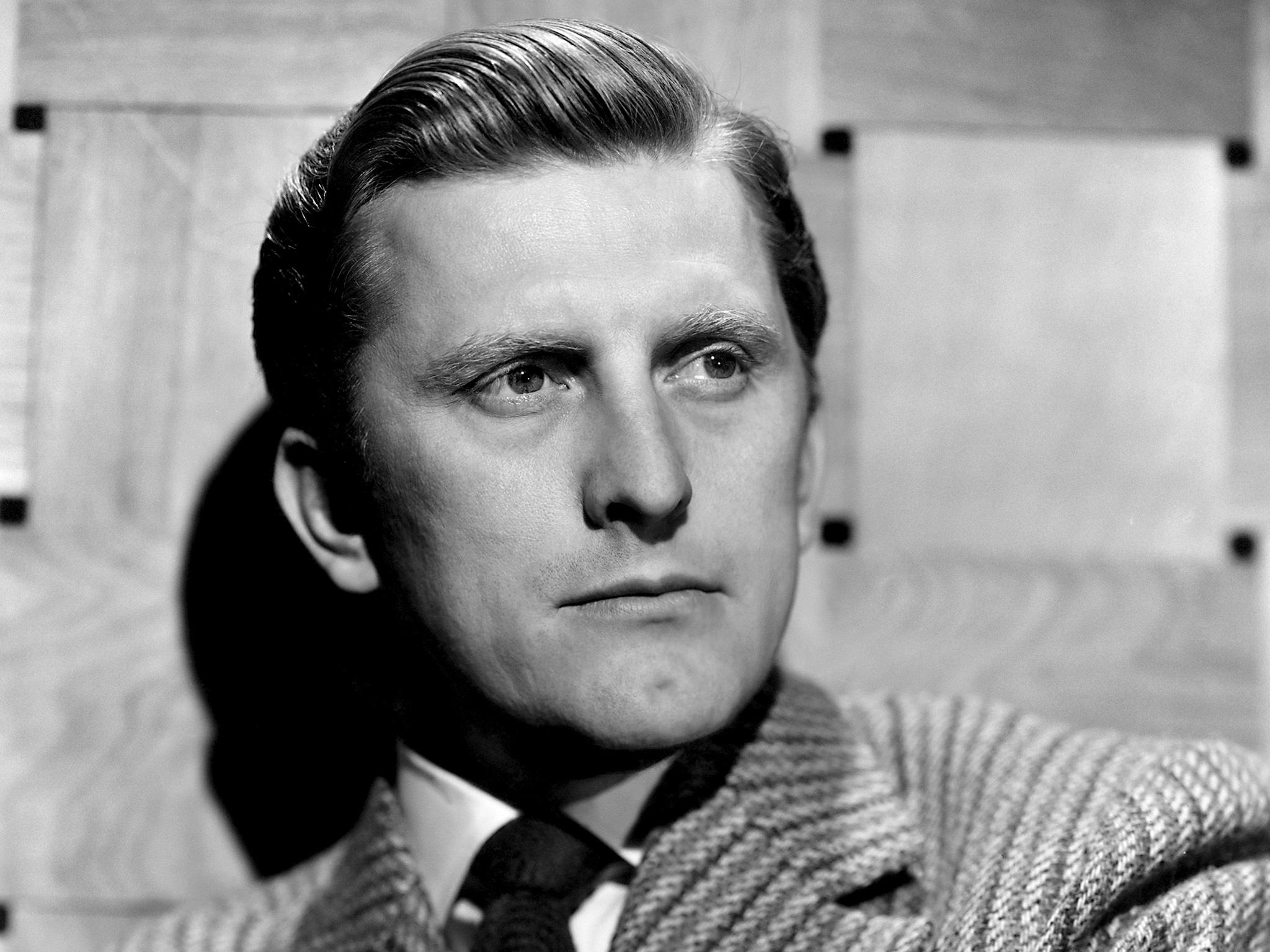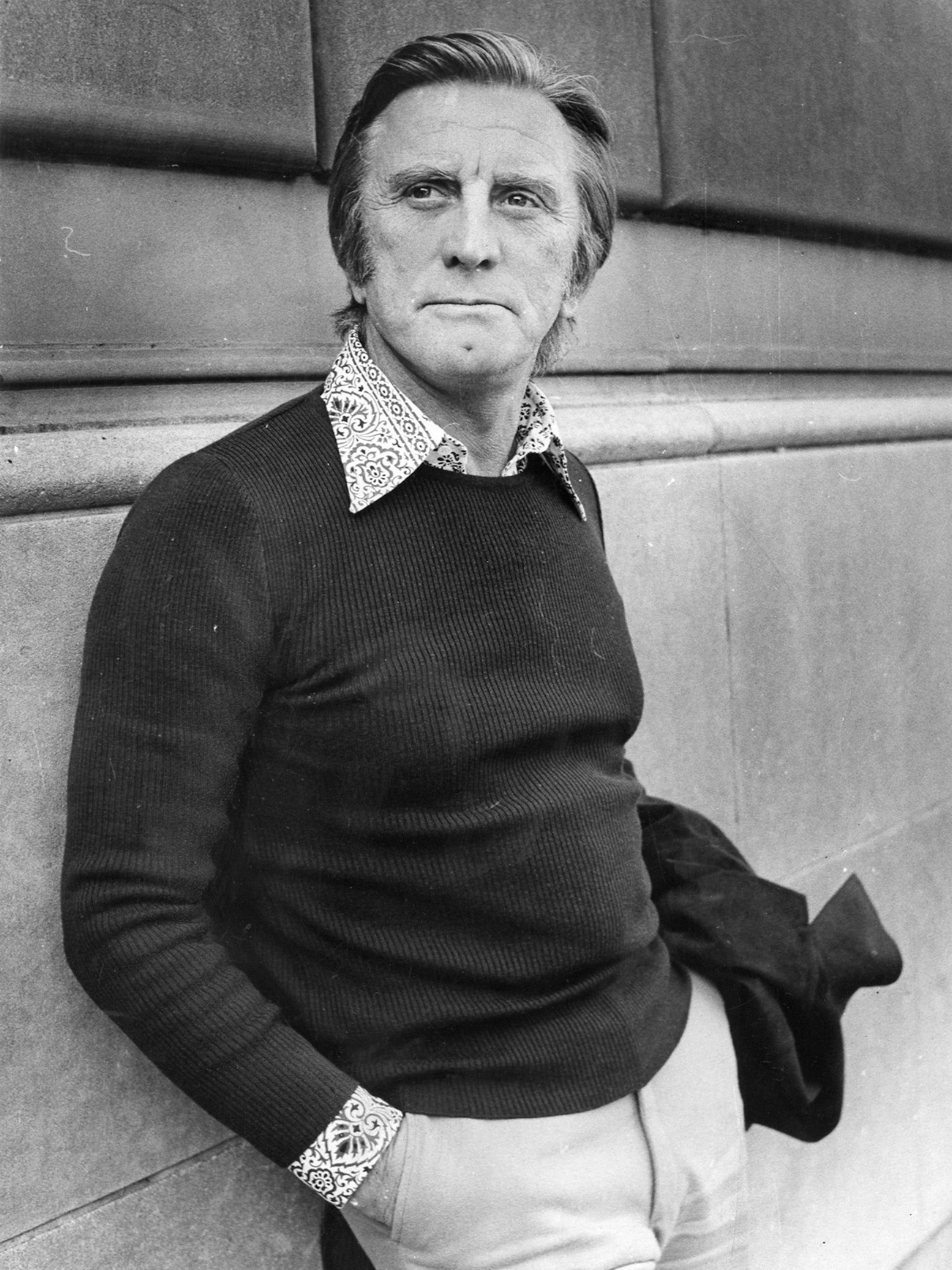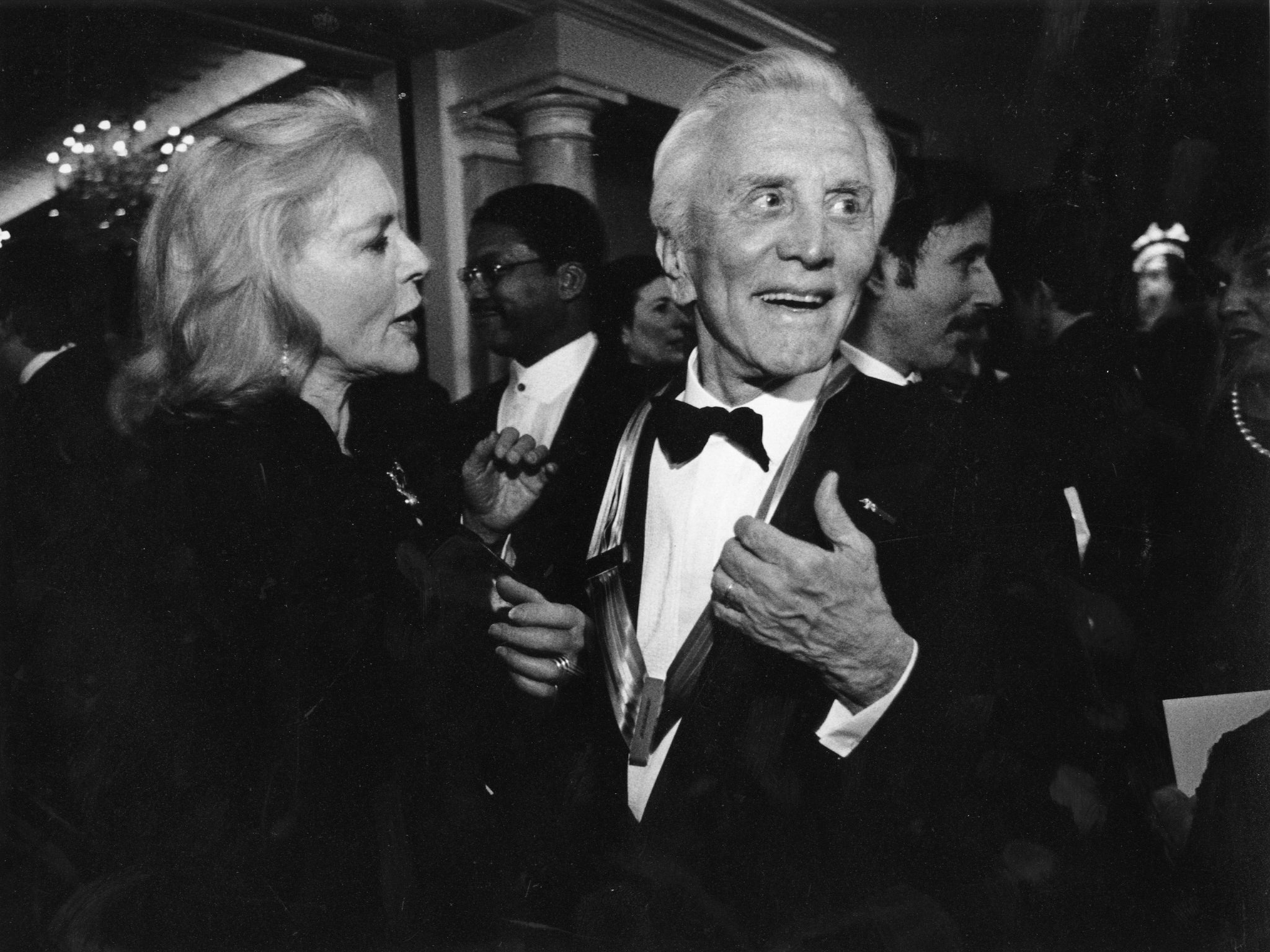Kirk Douglas: Hollywood star whose commanding presence lit up scores of screen roles
He was dazzling in ‘Champion’, ‘Spartacus’ and ‘Lust for Life’ and used his stardom to help break the Hollywood blacklist

Kirk Douglas brought a highly charged dramatic energy to starring roles in Spartacus, Lust for Life, Champion, Ace in the Hole and Paths of Glory, helping him to become one of Hollywood’s foremost leading men and enduring stars.
Douglas, who amassed nearly 90 screen credits, entered Hollywood in 1946 as a product of the studio system and later made the risky transition to being an independent producer and star performer as the system crumbled.
Beyond his on-screen work, Douglas produced and directed films; helped put an end to the Hollywood blacklist in the 1950s; wrote memoirs, novels and children’s books; and with his second wife, Anne Douglas, ran a project to improve school playgrounds in underprivileged neighbourhoods.
Starting in the 1960s, he travelled around the world as a US State Department “goodwill” ambassador, which sparked an interest in politics and brought him friendships with nearly every president since John F Kennedy. In 1981, President Jimmy Carter awarded him the Presidential Medal of Freedom, the US’s highest civilian honour.
In the prime of his acting career, Douglas was a dashing figure, a golden-haired hunk with chiselled facial features, steely blue eyes, a distinctive low guttural voice and pearly white teeth that gleamed behind a disarming smile. He had a muscular build stretched over a 5ft 10in frame, trim and fit from years as an accomplished high school and collegiate wrestler.
Built upon his raw physical strength were an intelligence and intensity that he infused into his movie characters. Many of them were unscrupulous, stubborn, even diabolical. For some movie critics, his acting seemed one-dimensional, easily parodied by comics.
To Douglas, the seriousness and approach to the craft of acting never wavered. Indeed, he always followed a simple formula. “When you play a strong character, find his weakness,” he once said. “If you play a weak character, find his strength.”
His work covered a range of genres, from westerns and epic dramas to romances and action adventures. In Douglas’s earliest movies, The Strange Love of Martha Ivers (1946) and Out of the Past (1947), he was cast in the unlikely role of smarmy weakling. His breakout role came in 1949 when he played a self-absorbed boxer in Champion, based on a Ring Lardner story of a restless young man who alienates those closest to him as he pursues a prize-fighting career.

He went on to play a troubled musician character based on the jazz trumpeter Bix Beiderbecke in Young Man with a Horn (1950); an obsessed detective with violent tendencies in Detective Story (1951); and an unscrupulous newspaper reporter in director Billy Wilder’s Ace in the Hole (1951).
Douglas portrayed Vincent van Gogh in Lust for Life (1956); played the gunslinger Doc Holliday in Gunfight at the OK Corral (1957); and appeared as a First World War French colonel in Stanley Kubrick’s scathing anti-war movie Paths of Glory (1957).
The son of a rag collector, Douglas was born Issur Danielovitch Demsky in 1916, in Amsterdam, New York, where he was the youngest child and only son in a family of seven children. On a wrestling scholarship, he entered St Lawrence University in Canton, New York, and worked as a janitor to help with tuition. After his graduation in 1938, he studied at the American Academy of Dramatic Arts in New York and made his Broadway debut as a singing Western Union boy in Spring Again (1941).
At the start of the Second World War, he enlisted in the navy and served as a communications officer with an anti-submarine unit. Before he could be sent to combat duty, a bout with amoebic dysentery led to an honourable discharge in 1944.
After a brief return to the New York acting scene, he won the attention of Hollywood producer Hal Wallis on the recommendation of Lauren Bacall, a former classmate at the academy.
In The Strange Love of Martha Ivers, Douglas played Barbara Stanwyck’s alcoholic and scheming husband, followed by a role as a gangster outfoxed by Robert Mitchum in Out of the Past.
His first starring role was the antihero lead in Champion, a part he described as “made for me – a chance to express the turbulent feelings inside me”. The small-budget independent movie emerged as a surprise hit, receiving six Academy Award nominations, including a best actor nod for Douglas. He went on to establish himself as an actor with a prowess for roles requiring great physicality and unsympathetic characters driven by self-interest.
The 1950s proved to be a banner decade for Douglas, who received two more best actor Oscar nominations while establishing a film-production company, Bryna Productions, named after his mother, Bryna Sanglel, a Russian Jewish immigrant. His nominations were for The Bad and the Beautiful and Lust for Life, the second a stark departure from the strong macho parts coveted by Hollywood’s leading men in the post-war era.

In later interviews he said his proudest professional achievement was his contribution to ending the Hollywood blacklist. That came about when Douglas, as executive producer of the big-budget epic Spartacus (1960), publicly credited Dalton Trumbo as the author of the screenplay.
Trumbo was one of 10 prominent screenwriters and directors who had been blacklisted for refusing to cooperate with the House of Representatives’ Un-American Activities Committee during the late 1940s and early 1950s. Until Spartacus, Trumbo had been forced to write under pseudonyms. But this film, which starred Douglas in the title role as the leader of a Roman slave revolt and received four Oscars, led to Trumbo’s reinstatement as a member of the Writers Guild.
Trumbo went on to write Lonely Are the Brave (1962), in which Douglas plays a defiant, old-fashioned cowboy in modern New Mexico who becomes a fugitive from the law. Although it received excellent reviews, the film did little business. Douglas said it was his favourite movie.
Douglas’s lone Oscar came in 1996 when he was given a lifetime achievement award for his influence as a creative and moral force in the motion picture community. A few months before this he had suffered a stroke, and had fallen into a severe depression, a period he wrote about in his book My Stroke of Luck (2002).
He came close to ending his life, placing a loaded a gun – the same one he used in Gunfight at the OK Corral – in his mouth. But when he smacked his teeth with the pistol’s barrel, the pain was so excruciating, he removed the gun and began chuckling, he recalled in his book. “A toothache delayed my death,” he said.
Douglas became an advocate for stroke survivors, relaying his own struggles and triumphs, as a way to raise public awareness about stroke symptoms, treatment and rehabilitation.
His first marriage, to Diana Dill, ended in divorce. He is survived by his second wife Anne Buydens, whom he married in 1954, and three children, one of whom is the actor Michael Douglas. Another son predeceased him.
Kirk Douglas, actor, born 9 December 1916, died 5 February 2020
Additional reporting by Adam Bernstein and Glenn Frankel
© Washington Post
Join our commenting forum
Join thought-provoking conversations, follow other Independent readers and see their replies
Comments
Bookmark popover
Removed from bookmarks